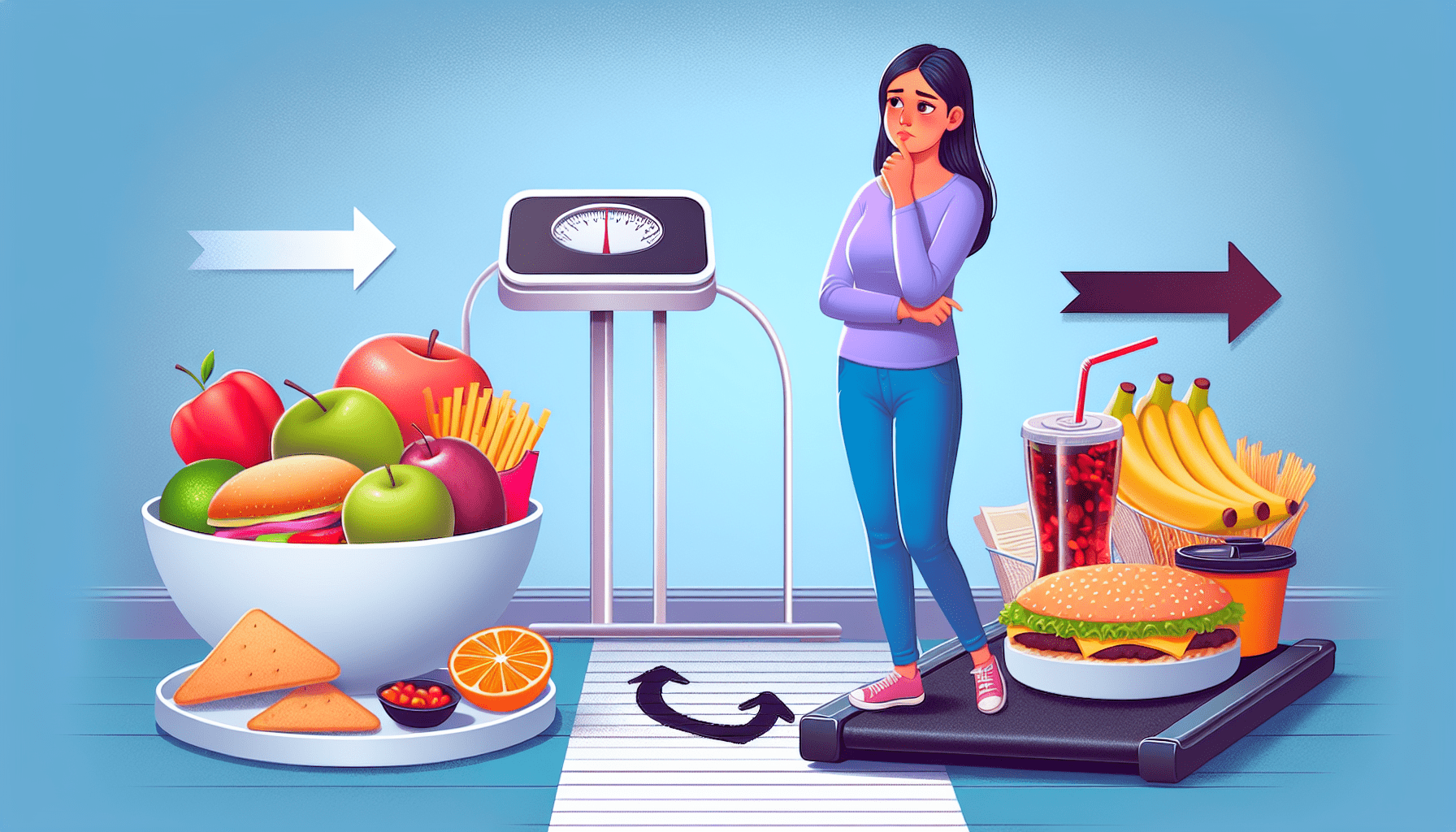If you’re on a weight loss journey, you may have wondered what things you should avoid to help you reach your goals. Making smart choices is key, and staying away from certain things can make a significant difference. In this article, we will explore the top things to avoid for weight loss, helping you make informed decisions and stay on track towards a healthier you.
1. High-Calorie Foods
When it comes to weight loss, one of the key factors to consider is the consumption of high-calorie foods. These foods are often packed with excess calories and can hinder your weight loss journey. Processed foods, such as chips, cookies, and packaged snacks, are notorious for being high in calories and low in nutritional value. Fast food, with its high fat and calorie content, can also contribute to weight gain. Additionally, sugary drinks like soda and sweetened juices can add a significant amount of calories to your daily intake. Lastly, high-fat snacks, such as fried potato chips or greasy nachos, should be limited as they can easily derail your weight loss efforts.
2. Excessive Sugar Consumption
Another culprit when it comes to weight gain is excessive sugar consumption. Added sugars, particularly found in beverages like soda, energy drinks, and flavored coffee, can pack a punch of unwanted calories. Sweets and desserts, such as cakes, cookies, and ice cream, are not only high in sugar but also in fat, making them a double threat to your weight loss goals. It’s important to be mindful of the sugar content in processed foods, such as cereal, granola bars, and sauces, as these hidden sugars can add up quickly and sabotage your progress.

3. Unhealthy Fats
Unhealthy fats are not only detrimental to your overall health but can also hinder weight loss. Saturated fats, found in fried foods, fatty cuts of meat, and full-fat dairy products, can lead to weight gain and increase the risk of heart disease. Trans fats, commonly found in processed and packaged foods, should be avoided as they not only contribute to weight gain but also raise cholesterol levels. It’s important to opt for healthier cooking methods, such as grilling or baking, and choose lean sources of protein and low-fat dairy products to reduce your intake of unhealthy fats.
4. Overeating
Overeating is a common roadblock for individuals trying to lose weight. Mindless snacking, where you eat without paying attention to your body’s hunger cues, can easily lead to consuming excess calories. Large portion sizes, often presented at restaurants and fast food establishments, can also contribute to overeating. Eating too quickly can make it difficult for your brain to register feelings of fullness, leading to overconsumption. Ignoring hunger and fullness cues can also cause you to eat when you’re not truly hungry or continue eating even when you’re satisfied. By being mindful of your eating habits and listening to your body’s signals, you can avoid the pitfall of overeating.

5. Sedentary Lifestyle
A sedentary lifestyle can hinder weight loss progress. Sitting for long periods, whether at a desk job or during leisure time, can lead to weight gain. Lack of physical activity and limited movement throughout the day can also contribute to a sedentary lifestyle. It’s important to incorporate regular physical activity and find opportunities to move throughout the day to keep your metabolism active and burn calories. Avoiding exercise altogether can further hinder weight loss efforts. Finding activities you enjoy and making them a regular part of your routine can help combat the negative effects of a sedentary lifestyle.
6. Emotional Eating
Using food as a coping mechanism is a common pitfall for many individuals on their weight loss journey. Emotional eating, where you turn to food to deal with stress, boredom, or seek comfort, can lead to weight gain. Instead of addressing emotions in a healthy way, relying on food for emotional fulfillment can sabotage your weight loss efforts. Identifying triggers for emotional eating and finding alternative coping mechanisms, such as exercise, journaling, or talking to a trusted friend or therapist, can help break the cycle of emotional eating.
7. Skipping Meals
Skipping meals, in an attempt to save calories or speed up weight loss, can actually backfire. Skipping breakfast may lead to overeating later in the day, as well as negatively impact metabolism and energy levels. Skipping lunch or dinner can also result in excessive hunger and potentially lead to binge eating or making unhealthy food choices. Irregular meal timings can disrupt your body’s natural hunger and fullness cues, making it harder to maintain a healthy eating pattern. Instead, focus on consuming balanced meals throughout the day to provide your body with the energy it needs and prevent overeating.
8. Lack of Sleep
Inadequate sleep duration and poor sleep quality can have a significant impact on weight loss efforts. Lack of sleep can disrupt hunger hormones, causing an increase in appetite and cravings for high-calorie foods. It can also affect metabolism, leading to a slower rate of calorie burn. Disrupted sleep patterns, such as night shift work or frequent waking during the night, can further disrupt the body’s natural rhythm and contribute to weight gain. Prioritizing consistent and quality sleep by establishing a bedtime routine, creating a comfortable sleep environment, and practicing relaxation techniques can support your weight loss goals.
9. Crash Diets
While the promise of rapid weight loss may be enticing, crash diets are not a sustainable or healthy approach to weight loss. Extreme calorie restriction can lead to nutrient deficiencies and have negative impacts on overall health. Unbalanced nutrient intake can also result in muscle loss rather than fat loss, which can slow down metabolism. The lack of sustainability with crash diets often leads to weight regain once normal eating resumes. Instead of resorting to extreme measures, focus on creating a balanced and sustainable eating plan that includes a variety of nourishing foods.
10. Mindset and Behavior
Your mindset and behavior play a crucial role in achieving successful weight loss. Negative self-talk, where you constantly criticize or doubt yourself, can hinder progress. It’s important to develop a positive mindset and believe in your ability to make positive changes. Lack of motivation can also derail your weight loss efforts, so finding ways to stay motivated and committed to your goals is essential. Setting realistic and achievable goals can provide a sense of direction and purpose. Lastly, impulsive eating, where you eat without thinking or planning, can sabotage your weight loss efforts. Staying mindful of your eating habits and practicing mindful eating can help overcome impulsive eating tendencies.



